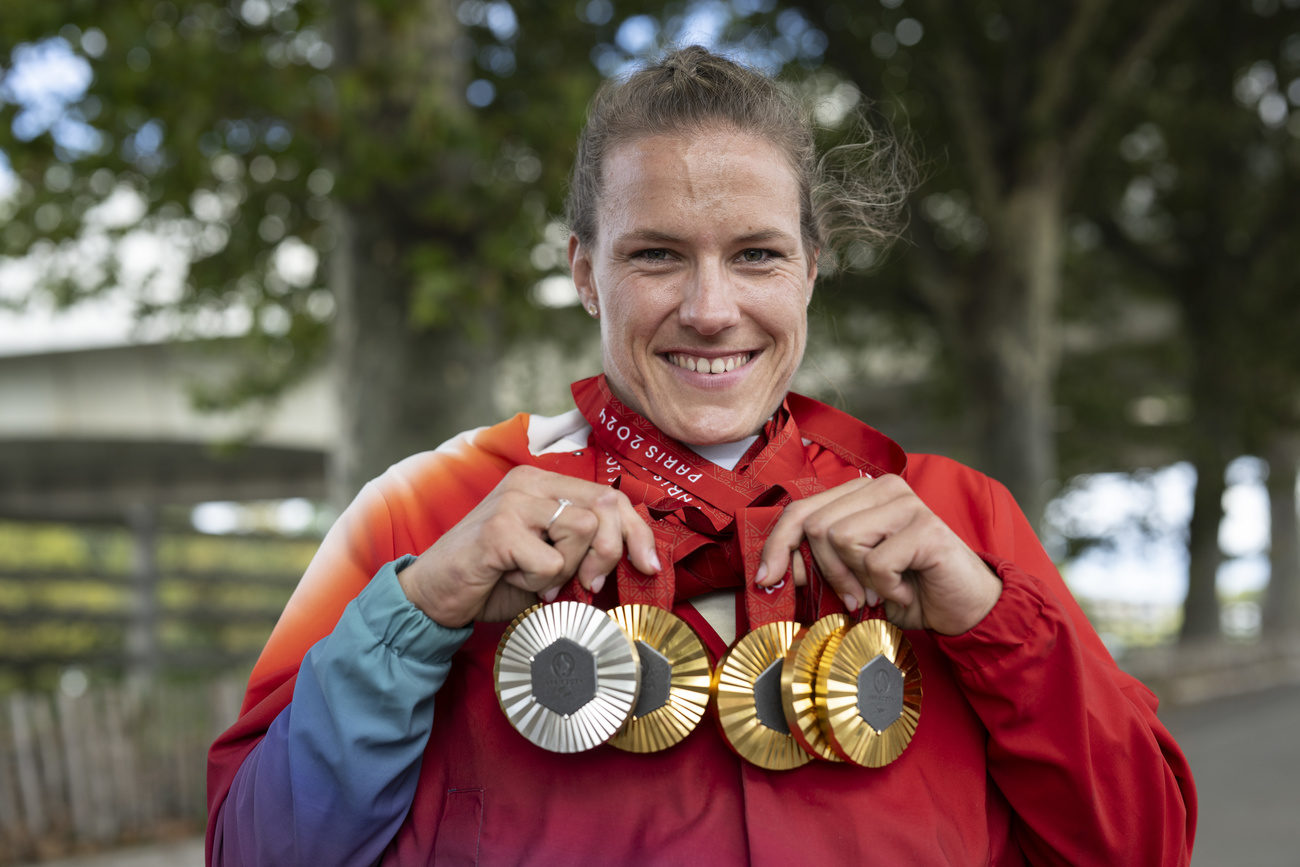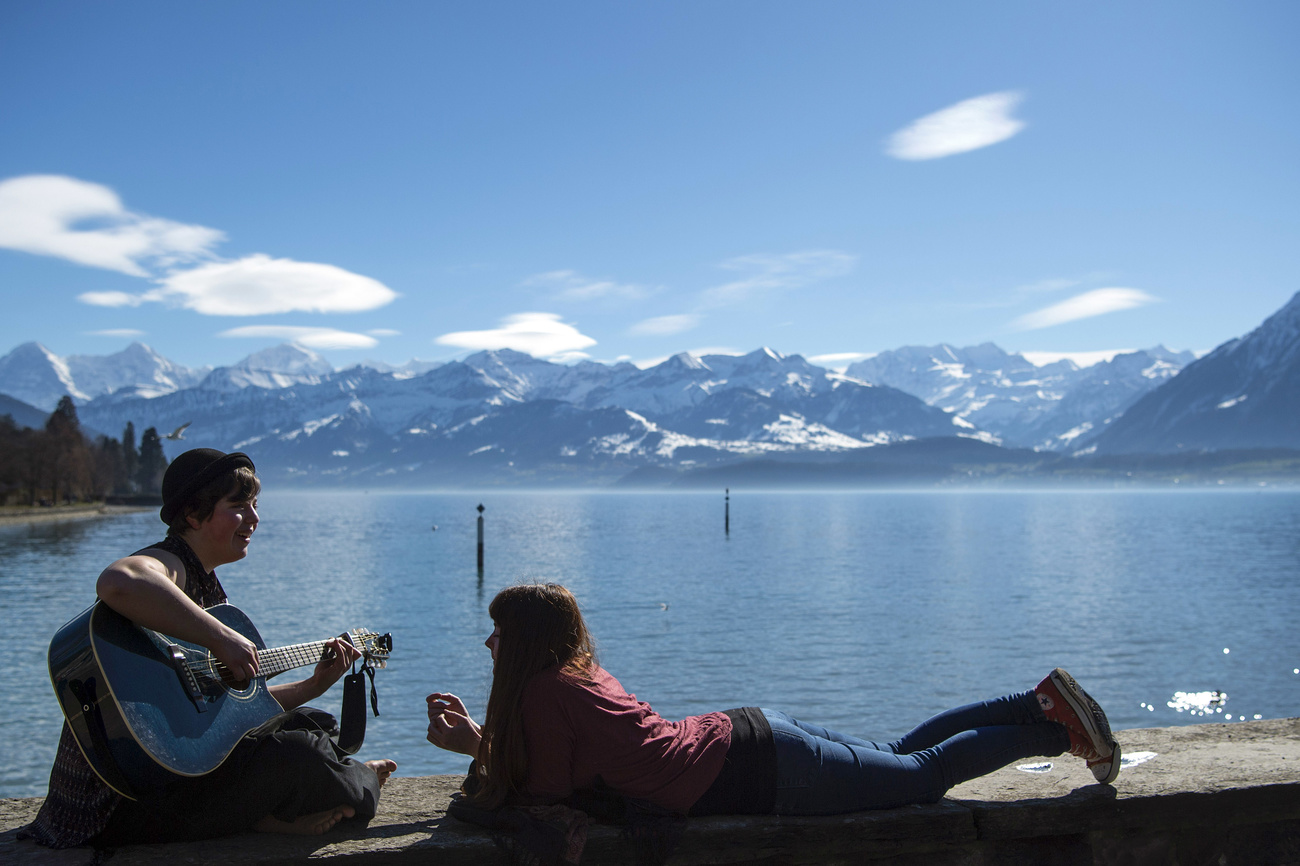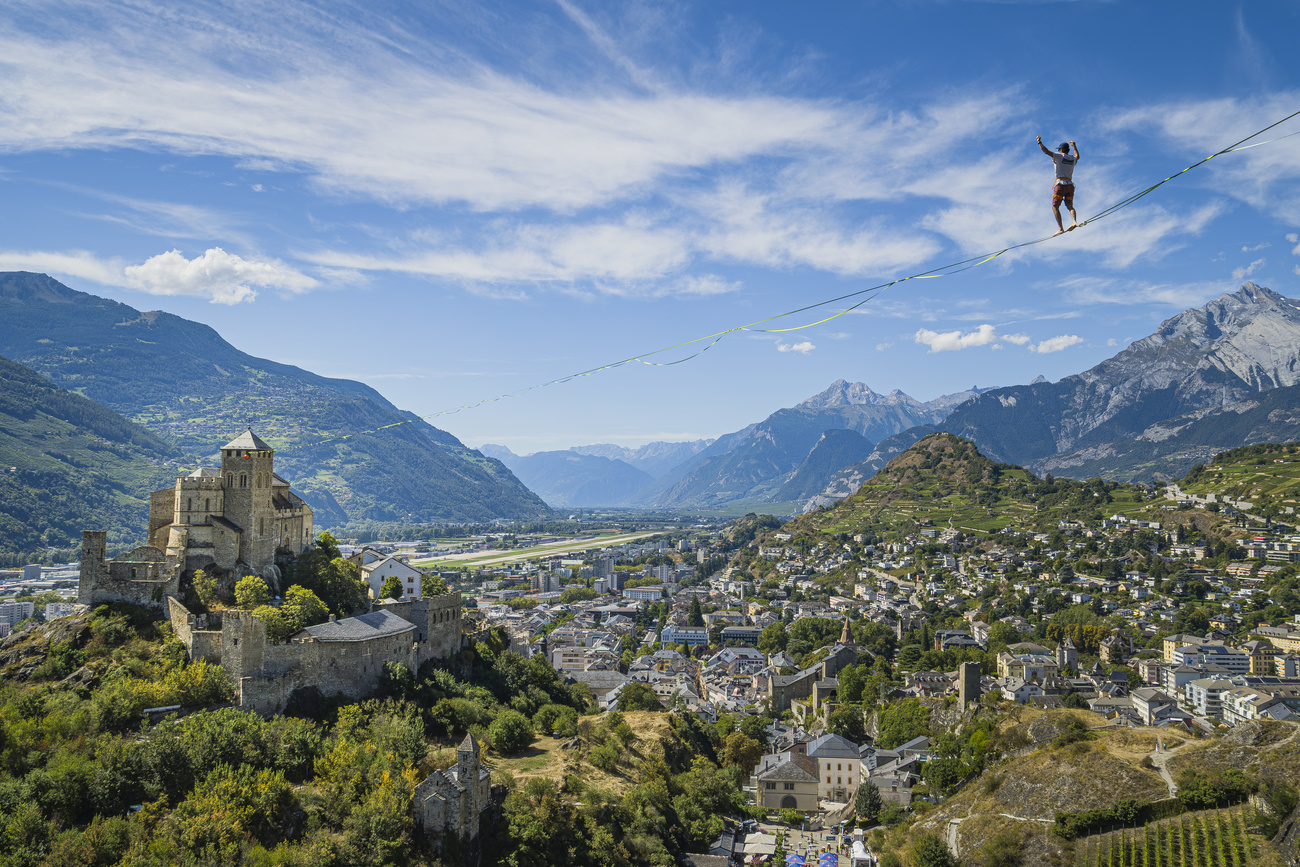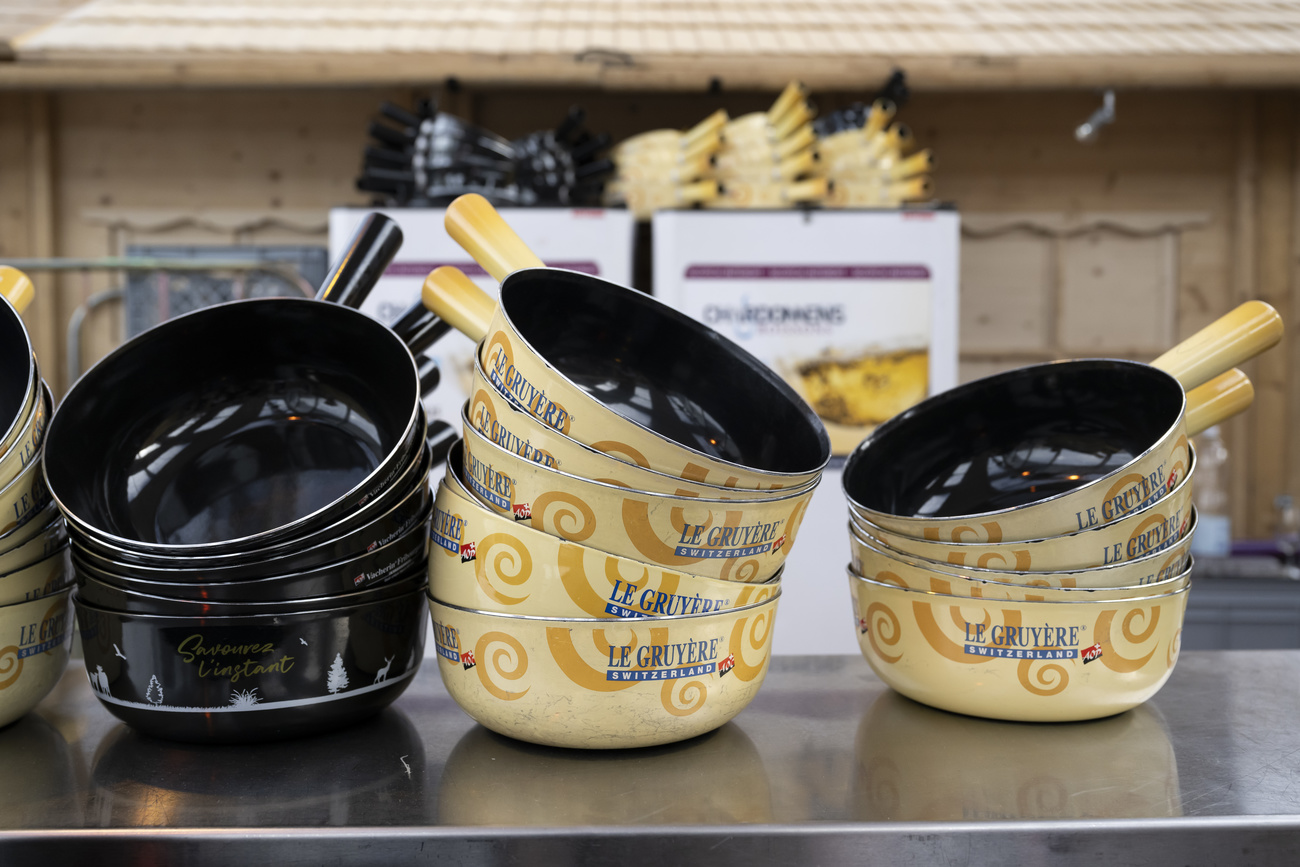

The Week in Switzerland
Dear Swiss Abroad,
Welcome to our selection of some of the biggest stories in Switzerland over the past seven days.
It was the Long Night of Zurich Museums last Saturday (pictured is part of the Botanical Garden at the University of Zurich), but it’s been a particularly long week for one Zurich resident. Politician Sanija Ameti resigned on Monday following a spectacularly poor choice of target for some shooting practice – she claims it was unintentional – and is now under police protection. More on that below.
THE BIG STORIES OF THE WEEK

The 2024 Paralympic Games wrapped up in Paris on Sunday, with Switzerland celebrating its most successful tournament since 1992.
The 27-strong Swiss delegation won 21 medals: eight gold, eight silver and five bronze. Catherine Debrunner was the star of the Swiss show, pocketing five golds and one silver (room for improvement there!).
The delegation “increasingly went into a medal frenzy”, Swiss Paralympic wrote on MondayExternal link, with the athletes pushing each other to top performances. Peter Läuppi, head of the Swiss delegation, stressed the breadth of the team, which not only won medals in its strongest disciplines of athletics (13) and cycling (5), but also in swimming (2) and badminton, where Ilaria Renggli claimed Switzerland’s first medal in the sport.

A story that was picked up by media all around the world involved Zurich politician Sanija Ameti, who caused a storm after she used an image of Jesus and Mary for target practice.
Ameti, a member of the Liberal Green Party in Zurich, claimed she had just picked up an art catalogue to shoot at and hadn’t paid attention to the religious content of the picture, but photos of a bullet-ridden Jesus resulted in criticism from all sides, including from her own party.
She quickly removed the photos from Instagram and apologised, but on Monday she resigned from the party leadership, which is currently discussing whether to rescind her party membership. Ameti is now under police protection following threats.
The controversy was covered in media including the Los Angeles TimesExternal link, the Taipei TimesExternal link and the Al Bawaba news websiteExternal link based in Jordan.

On Tuesday, the U.S. News & World Report confirmed what many of us biased Swiss residents know: Switzerland is the world’s best country – for the third year in a row.
“With a reputation for a high quality of life and a healthy business environment, the Alpine nation in central Europe continues to tower atop the Best Countries rankings,” U.S. News wroteExternal link.
However, as we have written about many times, many expats have a love-hate relationship with Switzerland.

On Wednesday, 11 days before the Swiss vote on pension reforms and more resources and space for biodiversity, a poll predicted both issues would be rejected.
Some 51% of the electorate is now opposed to the government plan to consolidate the second pillar of the pension system, 42% of those polled approve of the reform, while 7% are undecided. The pattern is virtually the same for the Swiss Abroad. Opponents say the project is basically a scam, because people with jobs will pay higher contributions only to receive lower pensions later on.
Similarly, 51% of the electorate are against the biodiversity initiative, 46% are in favour and 3% are undecided. The voting intentions of the Swiss Abroad differ here from those of their compatriots at home: 56% of those living abroad support the project. Political scientist Martina Mousson pointed out that the Swiss Abroad tend to be more left-wing and, as they don’t pay tax in Switzerland, they don’t have to bear the costs of implementing the text.
We will have in-depth coverage of the vote on September 22.

Our most read article this week was an analysis of the foreigners who make up a quarter of the Swiss resident population – and what brings them to Switzerland.
At the end of 2023, some 2.3 million people without Swiss citizenship were living in Switzerland (population nine million) – about a fifth of whom were born in the country. Italians still make up the largest proportion of foreign residents (14%), followed by Germans (13.4%), Portuguese (10.6%) and French (6.8%).
- Immigration in Switzerland: a threat or a chance for prosperity? Join the discussion on our debate platform “dialogue”.
- Information and links for the Swiss Abroad on immigration and emigration to and from Switzerland
Quirky Switzerland
Every family has mysteries, but few involve an ancestor who was mummified. Former diplomat Claudio Mazzucchelli had heard family rumours about his “Pasha great-grandfather” for decades, but while he was working in Egypt, he received a phone call telling him to go to a morgue…

More
‘That mummy is my great-grandfather’
Photo of the Week

That’s one way to beat the traffic: Swiss funambulist Yannick Wieser walks on a 300-metre slackline between the castles of Valère and Tourbillon during the “Gravit’High” event in Sion on September 7.
The Week Ahead

The autumn session of parliament continues. Here’s what’s on the agenda.
On Wednesday, the 11th Nutrition and Movement Report will be published. How healthy will the Swiss be? Will levels of obesity continue to rise? It’s tough to know how to interpret all the surveys nowadays – on the one hand we’re told that the Swiss population feels healthier than the rest of Europe, on the other more than two-thirds of Swiss people say they are tired and exhausted. How do you feel?
On Thursday, the Federal Office of Culture will announce which film will – hopefully – represent Switzerland at the Oscars in March. The most recent Swiss film to make the shortlist for the Best International Feature Film was My Life as a Courgette in 2016. The most recent Swiss film to actually win the Oscar was Journey of Hope back in 1990.

In compliance with the JTI standards
More: SWI swissinfo.ch certified by the Journalism Trust Initiative


























